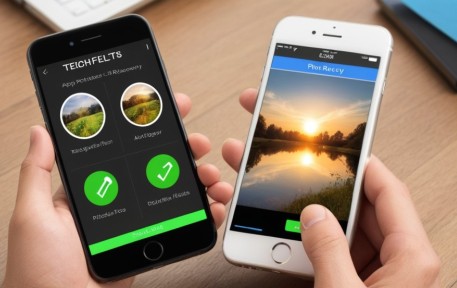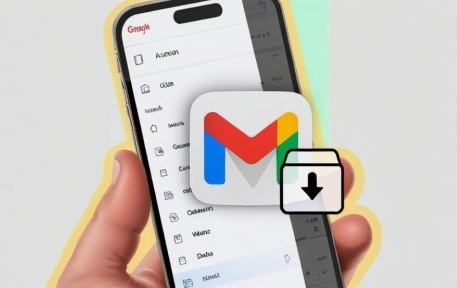In an era dominated by technology, mental health apps have become increasingly popular as tools for self-improvement and well-being. These apps offer a range of services, from mood tracking to guided meditation, all designed to assist users in managing their mental health. However, as the use of these apps proliferates, concerns about privacy and data security have arisen. Are mental health apps spying on you? This article delves into the world of mental health apps to conduct an ultimate data analysis and explore the implications for users’ privacy.

The Popularity of Mental Health Apps
Mental health apps have witnessed a surge in popularity over the last decade. Factors such as increased awareness of mental health issues, ease of access through smartphones, and the stigma surrounding traditional therapy have contributed to this phenomenon. People turn to these apps for various reasons, including stress reduction, anxiety management, depression treatment, and even simply for general well-being.
Mental health apps come in diverse forms, ranging from meditation and mindfulness apps like Headspace and Calm to mood tracking and therapy-focused platforms like BetterHelp and Talkspace. Regardless of the specific features they offer, all these apps have one thing in common: they collect data from their users.
The Data Collection Dilemma
Data collection is an intrinsic part of any app’s functionality. It allows app developers to improve their services, personalize user experiences, and target specific demographics. However, the data collected by mental health apps is uniquely sensitive. It often includes information about users’ emotional states, coping mechanisms, and even deeply personal experiences.
The question that looms large is whether this data collection is solely for improving the app or if there are more insidious purposes at play. Do mental health apps exploit the trust of their users by spying on them? To answer this question, it’s crucial to understand the types of data these apps collect and how they utilize it.
The Types of Data Collected
Mental health apps collect various forms of data, which can be broadly categorized into the following:
1. User Profile Data
User profile data is typically the first set of information mental health apps acquire. It includes basic demographic details like age, gender, location, and sometimes even ethnicity. While this data is usually not harmful on its own, it can be concerning if it is used to target vulnerable individuals for particular treatments or services.
2. Usage Data
Mental health apps track how users engage with the platform. This data includes the frequency of app usage, time spent on the app, and the specific features or content accessed. While these metrics can help improve the user experience, they might also be used to identify users who are more likely to need certain mental health interventions.
3. Self-Reported Data
One of the most critical components of mental health apps is the information users voluntarily provide about their mental state, emotions, and well-being. Users often document their daily mood, stress levels, and other personal experiences. The concern here is whether this self-reported data can be misused or shared without consent.
4. Sensor Data
Mental health apps may request access to smartphone sensors, such as the microphone and camera, to offer features like guided breathing exercises or journaling through voice recording. While these features can be beneficial for users, they also raise red flags about potential privacy violations.
5. In-App Conversations
Apps that offer messaging or counseling services record all communications within the platform. The conversations between users and therapists or peers are part of the data collected. This sensitive data must be securely stored and protected from unauthorized access.
6. Payment Information
If a mental health app offers premium or subscription-based services, it will collect payment information. Users often provide credit card details, further emphasizing the importance of data security and privacy safeguards.
App Developers’ Intentions
Understanding the intentions of mental health app developers is crucial in determining whether these apps are spying on users. Most developers claim to prioritize user well-being and data security. They assert that the data they collect is used for specific purposes, such as personalizing content, improving services, and conducting research. Some apps may also share aggregated and de-identified data with research institutions for the advancement of mental health science.
However, the trust users place in these claims is sometimes shaken by incidents and reports of data breaches, unethical data sharing, or even potential exploitation of sensitive information.
Privacy Concerns: Real or Imagined?
Privacy concerns regarding mental health apps may be legitimate, but it’s essential to differentiate between real issues and unfounded fears. Let’s delve into some of the notable concerns and controversies that have raised questions about the data practices of these apps:
1. Data Breaches
Data breaches are a significant concern in the digital age, and mental health apps are not immune to these risks. Instances of data breaches, which have exposed user data in some cases, have damaged trust in these apps. A breach can have severe consequences for users who share sensitive mental health information.
2. Third-Party Data Sharing
Mental health apps often integrate with third-party services for various reasons, such as payment processing or data analytics. The concern arises when these third parties gain access to sensitive user data. Users may not be fully aware of the extent of data sharing when they consent to using the app.
3. The Fine Print: Privacy Policies
Many users often overlook privacy policies, which are notorious for being long, complex, and filled with legal jargon. Some app developers bury clauses that allow for data sharing or even sale deep within these documents. Users who don’t scrutinize privacy policies may unwittingly consent to practices they would not agree to if they were fully aware.
4. Unscrupulous Advertising and Targeting
Some users report feeling targeted by advertising for mental health services or products based on their app activity. While personalized content can be helpful, it can also border on invasive, particularly when related to sensitive mental health issues.
5. Ethical Concerns
The commodification of mental health data raises ethical concerns. The potential for exploitation of users’ emotional states and personal struggles for financial gain is a contentious issue.
6. Regulatory Gaps
The regulatory landscape for mental health apps is still evolving, which leaves room for ambiguity and inconsistencies in data protection and privacy practices.
The Counterarguments
In fairness to mental health app developers, it is essential to consider the counterarguments that suggest privacy concerns might be overblown. These include:
1. Data for Good
Many developers genuinely aim to leverage the data they collect for the benefit of users. By analyzing patterns in mood, stress, or other factors, they can provide more tailored and effective mental health support. This approach, when implemented transparently and ethically, can be highly beneficial.
2. Anonymization and De-Identification
Responsible app developers take measures to anonymize or de-identify user data before it is used for research or other purposes. This process helps protect users’ privacy while still allowing data to be useful for broader mental health research.
3. Informed Consent
Many mental health apps have improved their transparency regarding data collection and sharing. Users are now often presented with clear and easily digestible information about how their data will be used. Informed consent is a important fecet of data privacy.
4. Regulatory Compliance
App developers operating in regions with data protection regulations are obligated to comply with data privacy laws. This can offer users a level of protection against abusive data practices.
The Ultimate Data Analysis
To assess whether mental health apps are spying on users, we need to conduct an ultimate data analysis. This analysis will scrutinize the privacy practices of several popular mental health apps, investigate potential breaches, and explore user experiences.
1. Privacy Policies Examination
One of the most critical aspects of any app’s privacy practices is its privacy policy. In this analysis, we will examine the privacy policies of some prominent mental health apps, looking for clauses related to data collection, sharing, and use.
2. Data Breach Incidents
We will delve into any reported data breaches involving mental health apps to understand the extent of the damage and whether users’ data was compromised.
3. User Feedback
User reviews and feedback on app stores can provide valuable insights into user experiences. We will explore user reviews to gauge sentiments regarding privacy and data security.
4. In-Depth Interviews
Conducting interviews with both mental health app users and developers can provide a nuanced perspective on privacy concerns and practices. By listening to their experiences and motivations, we can gain a more comprehensive understanding of the situation.
5. Data Sharing and Third-Party Integration
We will investigate the extent of data sharing between mental health apps and third-party services. Are users aware of this sharing, and is it being done transparently and ethically?
Case Studies
To illustrate the complexity of the issue, let’s explore a couple of case studies that focus on specific mental health apps and their privacy practices.
Case Study 1: Calm
Calm is a popular meditation and sleep app. It collects data about users’ meditation sessions, sleep patterns, and emotional states. The company states that this data is used to personalize content and improve the user experience. In our analysis, we will examine whether Calm’s privacy practices align with its claims.
Case Study 2: BetterHelp
BetterHelp is an online therapy place that links users with licensed therapists. It collects extensive self-reported data about users’ mental health issues, which is crucial for the therapy process. However, users have raised concerns about data sharing and privacy. Our analysis will investigate the extent of data sharing and the clarity of informed consent.
The User Perspective
Ultimately, the user perspective is crucial in determining whether mental health apps are spying on their users. User trust is paramount for these apps to be effective and ethical. The ultimate data analysis should include user opinions and experiences.
User Concerns
We will explore common concerns expressed by users, including fears of data breaches, unauthorized data sharing, and potential misuse of personal information.
User Benefits
At the same time, we will examine the benefits users perceive in using mental health apps. Understanding what users gain from these platforms can provide valuable context for assessing privacy concerns.
Informed Consent
One of the most critical aspects of data privacy is informed consent. We will investigate whether users feel adequately informed about the data practices of the apps they use and whether they believe they have agency over their data.
The Way Forward
The ultimate data analysis of mental health apps should serve as a starting point for addressing the complex issues surrounding privacy and data security. It is crucial for app developers, regulators, and users to collaborate to create a safer and more transparent environment for mental health app usage.
1. Transparency
App developers should prioritize transparency in their data practices. This includes clear and easily understandable privacy policies, prominent disclosures about data sharing, and the extent of third-party integration.
2. User Education
Users must be educated about the potential risks and benefits of using mental health apps. This education should empower them to make informed decisions about which apps to use and how to protect their data.
3. Regulatory Oversight
Regulators need to keep pace with the rapidly evolving landscape of mental health apps. Clear and enforceable regulations can provide a safety net for users and discourage unscrupulous data practices.
4. Ethical Data Use
App developers should prioritize the ethical use of data for the benefit of users, without exploiting their vulnerabilities. This includes de-identifying data for research and safeguarding the data against unauthorized access.
Conclusion
The surge in the popularity of mental health apps has brought privacy concerns to the forefront. While data collection is a fundamental aspect of these apps, it is essential to ensure that data practices prioritize user privacy and data security. The ultimate data analysis of mental health apps presented in this article highlights the need for transparency, education, and regulatory oversight to strike a balance between the potential benefits and risks of using these apps. Users must be empowered to make informed decisions about their mental health and data privacy, ensuring that the technology designed to improve their well-being doesn’t inadvertently harm it.



